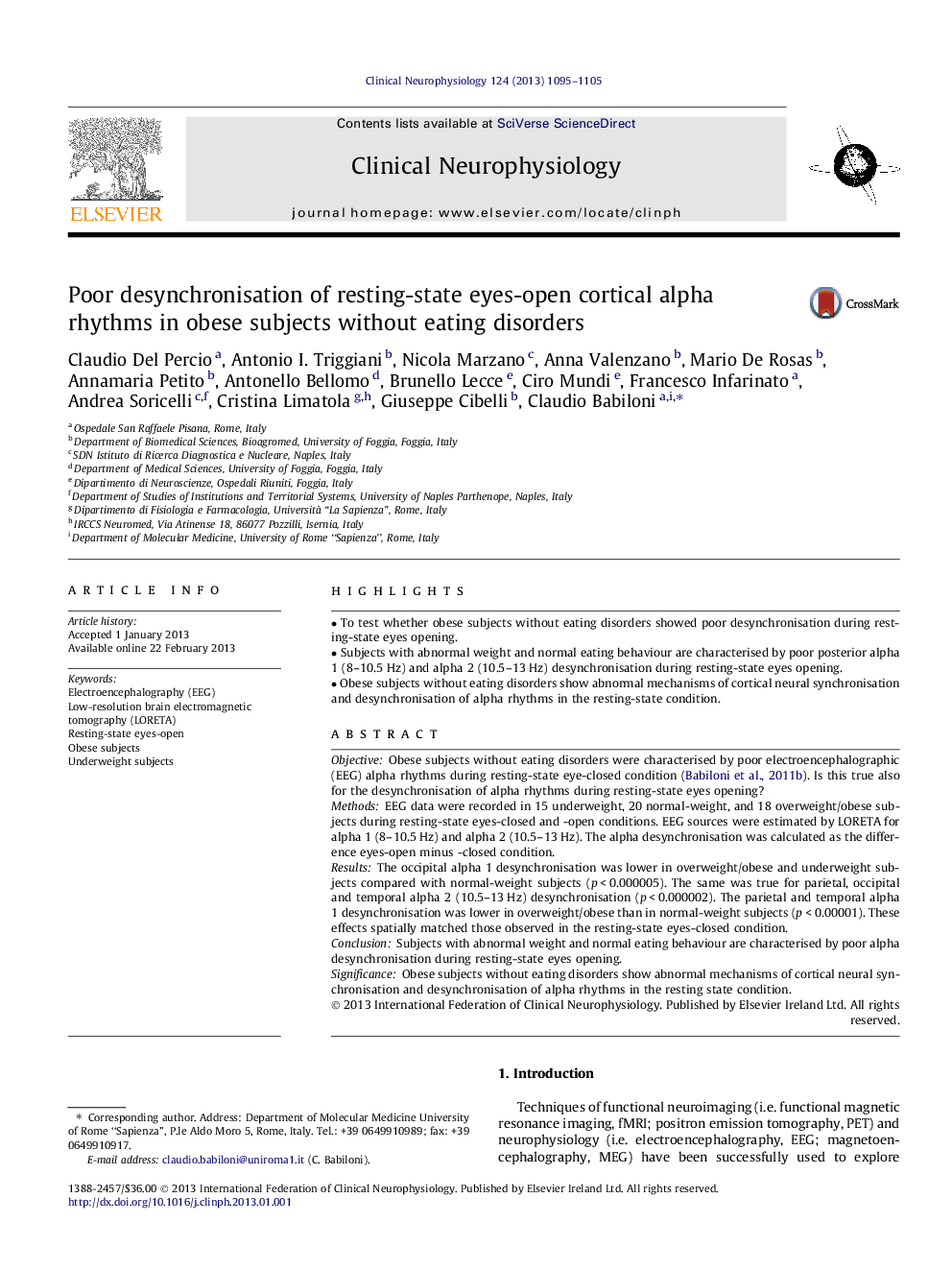| Article ID | Journal | Published Year | Pages | File Type |
|---|---|---|---|---|
| 3043864 | Clinical Neurophysiology | 2013 | 11 Pages |
ObjectiveObese subjects without eating disorders were characterised by poor electroencephalographic (EEG) alpha rhythms during resting-state eye-closed condition (Babiloni et al., 2011b). Is this true also for the desynchronisation of alpha rhythms during resting-state eyes opening?MethodsEEG data were recorded in 15 underweight, 20 normal-weight, and 18 overweight/obese subjects during resting-state eyes-closed and -open conditions. EEG sources were estimated by LORETA for alpha 1 (8–10.5 Hz) and alpha 2 (10.5–13 Hz). The alpha desynchronisation was calculated as the difference eyes-open minus -closed condition.ResultsThe occipital alpha 1 desynchronisation was lower in overweight/obese and underweight subjects compared with normal-weight subjects (p < 0.000005). The same was true for parietal, occipital and temporal alpha 2 (10.5–13 Hz) desynchronisation (p < 0.000002). The parietal and temporal alpha 1 desynchronisation was lower in overweight/obese than in normal-weight subjects (p < 0.00001). These effects spatially matched those observed in the resting-state eyes-closed condition.ConclusionSubjects with abnormal weight and normal eating behaviour are characterised by poor alpha desynchronisation during resting-state eyes opening.SignificanceObese subjects without eating disorders show abnormal mechanisms of cortical neural synchronisation and desynchronisation of alpha rhythms in the resting state condition.
► To test whether obese subjects without eating disorders showed poor desynchronisation during resting-state eyes opening. ► Subjects with abnormal weight and normal eating behaviour are characterised by poor posterior alpha 1 (8–10.5 Hz) and alpha 2 (10.5–13 Hz) desynchronisation during resting-state eyes opening. ► Obese subjects without eating disorders show abnormal mechanisms of cortical neural synchronisation and desynchronisation of alpha rhythms in the resting-state condition.
